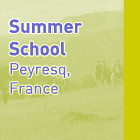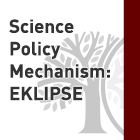|
The workshop 'Long term socio-ecological research: What do we know from science and practice?' was co-organised by ALTER-Net and LTER-Europe. It took place in Helsinki, Finland from 14-17 June 2011. Here you can read the main outcomes of the workshop and access speakers' presentations.
Summary
The workshop was attended by 33 people; 14 European LTER networks were represented. The programme featured nine keynote presentations, each followed by an invited critical commentaries. Afternoons were devoted to group work and delegates were also treated to two additional 'refreshment talks' each evening.During group work, delegates considered the (i) the benefits of socio-ecological research and (ii) research ideas.
The benefits of socio-ecological research
Two groups discussed the benefits of moving towards socio-ecological research. One considered the question from a disciplinary scientist´s perspective, one from an interdisciplinary actor´s perspective.Many different groups were thought to benefit from socio-ecological research. Aside from research scientists themselves, this kind of research was seen to benefit planners, the operators of research platforms, wider society and even ecosystems! Perceived benefits include enabling planners to make more sustainable decisions, helping inhabitants' needs to be considered in policy-making and providing researchers with scenarios for modelling.
Research ideas
As a starting point, groups were asked to consider how to operationalise in LTER-Europe the outcomes from ALTER-Net's work on knowledge needs in ecosystem services and governance. Ideas proposed included:
- Conduct a comparison of two different habitat types, e.g. forest vs complex terrestrial
- Study certain ecosystem services such as biomass, tourism, timber, food
A range of other research ideas were also suggested, including:
- Quantifying (relatively) established indicators of ecosystem services over several LT(S)ER sites/platforms
- Testing metrics of biological diversity for several charismatic and less charismatic species groups as indicators for cultural ecosystem services in different cultural settings
- How do we use and manage ecosystem services: the influences of tradition, policies, etc.?
Within the ALTER-Net and LTER-Europe networks, social scientists are still a minority. Dialogue between disciplines is needed when research questions are discussed, and this discussion is equally relevant at different levels, from research platform to national network and LTER-Europe. ALTER-Net's focus is on biodiversity. Socio-economic parameters are important factors affecting biodiversity, and deserve greater attention within ALTER-Net. It is hoped to organise further socio-ecological workshops, when hopefully more socio-economists and ecologists will be able to meet and exchange ideas. Future LTSER workshops should be built on the foregoing ones and recognized gaps in knowledge should be considered as a basis for following workshops.
Organizers
- Long-Term Biodiversity, Ecosystem and Awareness Research Network (ALTER-Net) (Jiska van Dijk)
- Finnish Environment Institute (SYKE) (Eeva Furman, Leena Kopperoinen, Laila Liukka)
- Institute of Social Ecology (SEC), Alpen-Adria Universität (Simron Jit Singh)
- Helsinki University Centre for Environment (HENVI) (Jari Niemelä)
- InterAcademy Panel (IAP) (Kinga Krauze)
Objectives
The emerging interdisciplinary field of Long-Term Socio-Ecological Research, abbreviated LTSER, aims at observing, analyzing, understanding and modelling of changes in coupled socio-ecological (or human-environment) systems over longer, i.e. at least decadal, sometimes even centennial, periods of time. LTSER is focused on interactions between societies and ecosystems at various spatial and temporal scales. By including long-term monitoring, historical research, forecasting and scenario building, empirical and conceptual research as well as participatory approaches, LTSER aims at providing a knowledge base that helps to reorient socio-economic trajectories towards more sustainable pathways.
The aim of this workshop is to bring together scholars and practitioners engaged with Long-term Socio-ecological Research to discuss the state-of-the-art in terms of science and practice, and to build stronger links between the two.
Keynote speakers
- Professor Christopher G. Boone, School of Sustainability and School of Human Evolution & Social Change, Arizona State University, Phoenix, USA
- Dr. Bálint Czúcz, Institute of Ecology and Botany of the Hungarian Academy of Sciences, Vácrátót, Hungary
- Dr. Jan Dick, Centre for Ecology & Hydrology, Edinburgh, UK
- Professor Eeva Furman, Environmental Policy Centre, Finnish Environment Institute (SYKE), Helsinki, Finland
- Network Director Elli Groner, Israel LTER Institute for Desert Environment Research, Ben Gurion University
- Professor Helmut Haberl, Institute of Social Ecology Vienna (SEC) and Alpen-Adria Universität, Vienna, Austria
- Dr. Zita Izakovicova, Institute of Landscape Ecology, Slovak Academy of Sciences, Bratislava, Slovakia
- DI Dr. Michael Mirtl, Ökosystemforschung & Monitoring, Umweltbundesamt, Vienna, Austria
- Dr. Maria Luisa Paracchini, Rural, Water and Ecosystem Resources Unit, JRC Institute for Environment and Sustainability, European Commission, Ispra, Italy
- Dr. Simron Jit Singh, Institute of Social Ecology (SEC), Alpen-Adria Universität, Vienna, Austria
- Dr. Taru Peltola, Finnish Environment Institute (SYKE), Joensuu, Finland
|
joint venture
Participants
- 33 persons
- 14 national LTER networks from LTER-Europe ALTER-Net management board
- Finnish scholars
Presentations / files
Speakers' presentations and other files relating to the workshop are available from the LTER-Europe website
|







